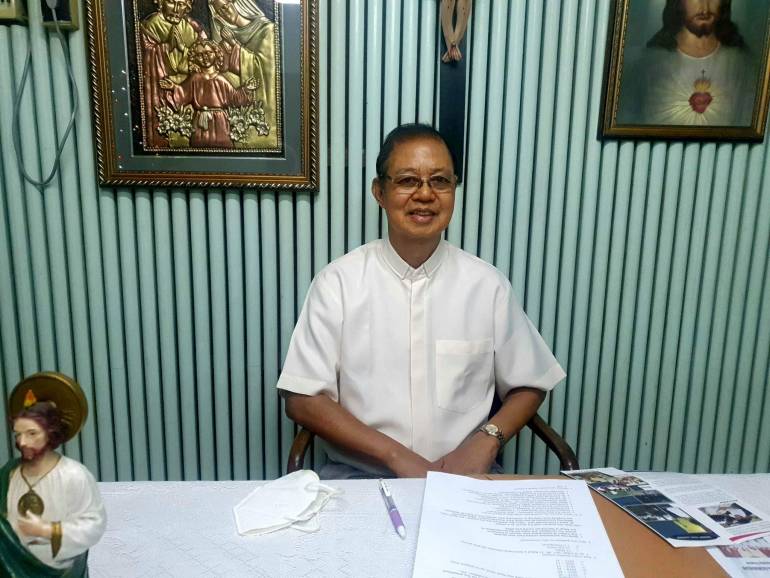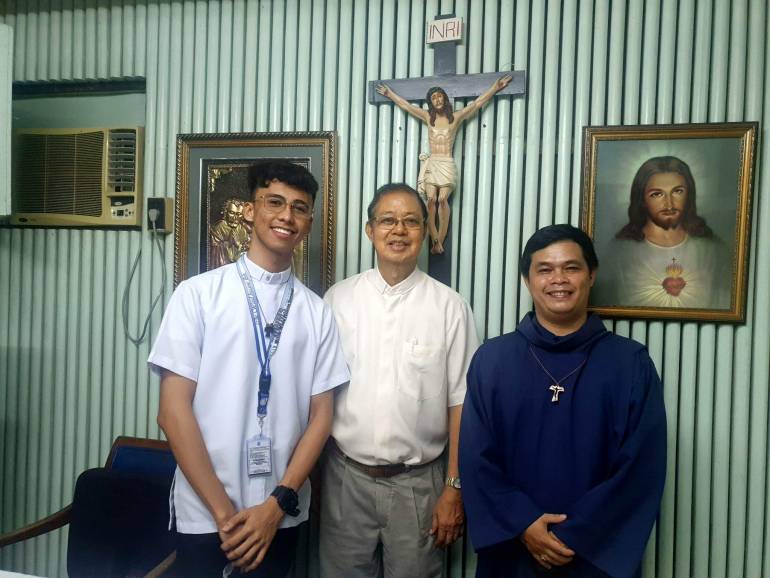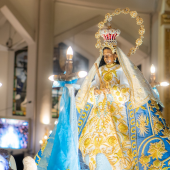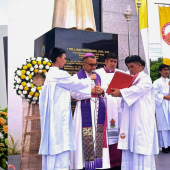Scholarship program seeks to offer financial aid to more seminarians in Philippines

Known as the Adopt-A-Seminarian Scholarship Program, this educational grant looks at offering monetary assistance to more deserving young men aspiring for the priesthood.
Initiated in 1997, it has been carrying on its mission of helping the Church rear up future priests for the past 26 years.
Harnessing media to generate support
This scholarship program draws continuous support from local and international well-wishers through the mail and by announcing its fundraising campaigns through the media.
"We get support for the scholarship program through solicitation letters and by plugging it during our TV program," said Fr. Isabelo 'Bel' R. San Luis, head of the Adopt-A-Seminarian scholarship program and a member of the Society of the Divine Word (SVD).
San Luis has been penning The Word Alive for 30 years, a column in the Manila Bulletin, a daily national broadsheet in the Philippines with an online edition.
The Divine Word priest also appealed for support through his Salitang Buhay teleradio show on DZMM, a radio station in the Philippines that went off the air on May 5, 2020, after ABS-CBN's broadcast franchise had lapsed. Salitang Buhay means "living word" in Filipino.
The Philippine House of Representatives legislative committee on franchises denied ABS-CBN's application to renew its broadcast franchise on July 10 of the same year. ABS-CBN, the country's largest media network, was the mother company of DZMM.
The SVD has apostolates in the media. San Luis founded the Family TV Mass that airs on GMA 7, one of the country's leading media networks.
The congregation makes the Adopt-A-Seminarian scholarship program part of its media ministry. They also plead for support for the seminarians through the Family TV Mass.
"What we did before was soliciting" financial assistance just for a few seminarians from low-income families," San Luis said. "Later on, more and more came requesting help. But the financial support was only for the seminarians of the SVD at that time."
As the number of seminarians applying for the scholarship grew, the Mission Communication Foundation was compelled to seek more support from charitable individuals and organizations to meet the growing need for financial assistance, the priest said.
The scholarship program is one of the beneficiaries of the Mission Communication Foundation of the SVD. San Luis also serves as the foundation's president.
Based on available data from 2016 to 2022, San Luis said the scholarship program issued grants to 115 seminarians.
According to a document furnished by San Luis, the program offered the most significant number of grants for 2017, with 44 recipients.
As of November 8, 2022, the program has produced 23 priests and seven theologians from 2016 to 2022. Of the 23 priests, 11 belong to the SVD, the 12 to other congregations.
Currently, the program supports a total of 28 seminarians. Of the total,12 belong to the SVD, the 16 to other congregations.
The program's recipients are studying at different schools in the country.

Generosity during difficult times
"During the pandemic, we were also worried because we thought we might not be able to continue supporting the seminarians," San Luis said.
But the priest expressed surprise at how some people responded generously to their appeal for support at the height of the pandemic.
One benefactor transmitted P100,000 in financial aid to the seminarians when the business sector shut down stores and coldly trimmed the number of employees. The economic indicators were exhibiting the sharpest slides in recent history.
San Luis explained that the candidates for the scholarship undergo screening at prefectures in parts of the country. After the screening, the prefects recommend the candidates to his office in Manila, where the scholarship applications are approved or denied depending on their merits.
The scholarship grant is a big relief to the recipient seminarians because matriculation would otherwise weigh on their minds had they not received it.
Bro. Fernando Cabilan, a student at the Recoletos School of Theology, is one of the scholarship program recipients. He hailed from Bukidnon, a province in the southern Philippines, where he finished his philosophy.
Cabilan said his family "supports" him "by providing him with allowance and personal needs, like soap, clothes, and other basic needs."
Sem. James Matre, a philosophy student at the Divine World Mission Seminary in Quezon City, is another financial aid recipient.
When Matre was a child, his parents abandoned him, and his grandmother raised him. His parishioners in Mindoro also dispense him with little financial support.
Asked what they would have done had they not received the scholarship program, both Cabilan and Matre said they would have still found a way to become priests.
"There should not be a problem for an aspirant or a seminarian who wants to continue in the priesthood," San Luis said. "What matters, of course, is if you have the vocation, go for it. Do not worry about the financial support because it's our responsibility."
"We need seminarians, and we have to support them," he added, "because if there are no seminarians, we cannot have priests, missionaries, bishops, and popes. Seminarians are very important in our Church."
Radio Veritas Asia (RVA), a media platform of the Catholic Church, aims to share Christ. RVA started in 1969 as a continental Catholic radio station to serve Asian countries in their respective local language, thus earning the tag “the Voice of Asian Christianity.” Responding to the emerging context, RVA embraced media platforms to connect with the global Asian audience via its 21 language websites and various social media platforms.














